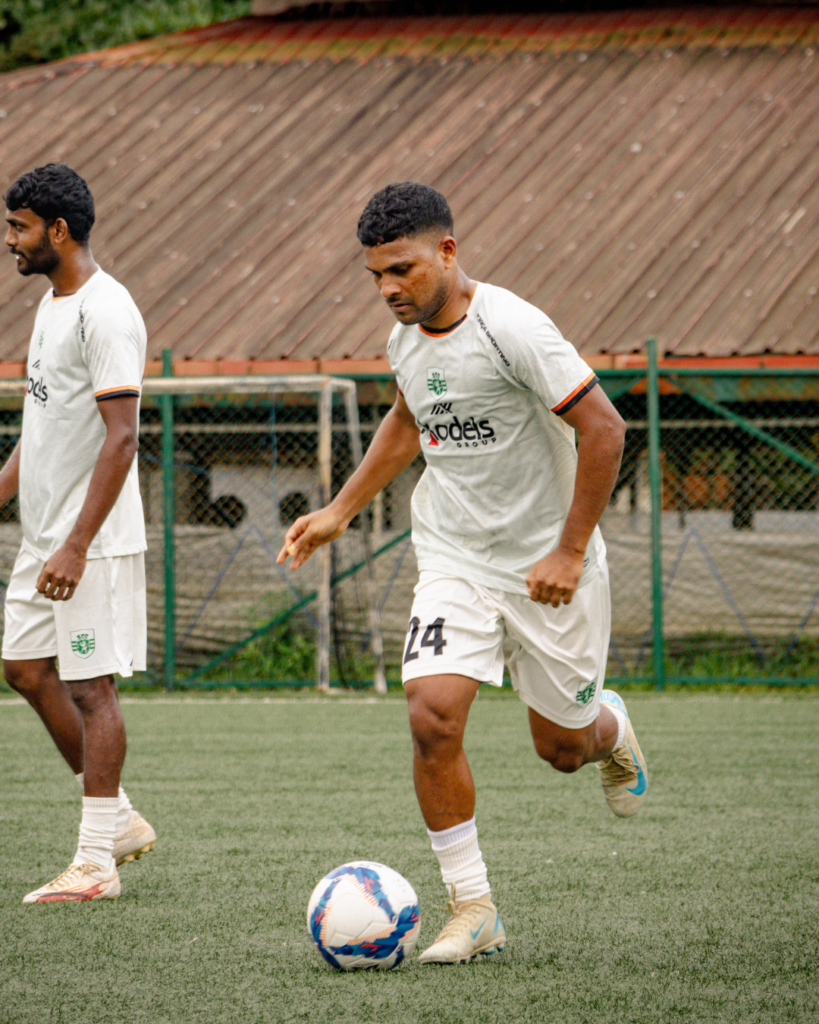Football is often defined by talent and skill, yet a good performance relies just as much on what happens off the pitch. Beyond coaching and tactics, the way local players are nurtured and supported makes a critical difference. While foreign players often bring strength and conditioning as a core part of their routine, many young Goan players still depend heavily on traditional diets such as fish curry and rice. This contrast highlights the growing importance of modern nutrition and fitness practices in shaping athletic potential.
Football demands a combination of skill, stamina, and strategy. While training and practice are essential, nutrition plays an equally vital role in determining performance and recovery. Aspiring footballers who understand what to eat, when to eat, and how to hydrate can maximize their potential on the field. This becomes especially important after matches, where timely nutrition can make a significant difference.
A quick protein shake helps kick-start muscle repair, followed by a balanced, nutrient-rich meal within 30–60 minutes to restore energy levels and speed up recovery, ensuring players are ready to perform again at their best.
Carbohydrates are the primary source of energy for football players. They provide fuel for high-intensity sprints, quick changes of direction, and sustained performance over 90 minutes. Whole grains, pasta, rice, and fruits supply the energy needed to stay active during training and matches. Without sufficient carbohydrates, players may fatigue early, which affects both individual and team performance.
Proteins are crucial for repairing and building muscles. After rigorous training or a demanding match, proteins help recover muscle tissue that has been stressed during play. Lean meats, eggs, dairy products, legumes, and nuts are excellent sources. Proper protein intake not only supports recovery but also enhances strength and endurance over time, which is especially important for young players still in their growth phase.
Hydration is a critical factor in football performance. Even mild dehydration can reduce focus, lower reaction time, and decrease stamina. Players should maintain regular water intake before, during, and after sessions. Sports drinks can help replenish electrolytes and provide extra energy during long matches or intense training. Proper hydration ensures athletes maintain optimal physical and mental performance throughout the game.
Timing meals around training and matches is just as important. A balanced meal two to three hours before practice or a game ensures adequate energy. Post-training or post-match meals should combine carbohydrates and proteins to replenish glycogen stores and repair muscles. Small, nutrient-dense snacks between meals can also help maintain energy throughout the day, especially for young players balancing academics and training.
Fitness and overall conditioning go hand in hand with nutrition. Strength and agility training, flexibility exercises, and proper warm-ups are essential for performance and injury prevention. Incorporating exercises such as lunges, squats, planks, and sprint drills enhances endurance and reduces the risk of injury. These fitness practices complement good nutrition to create a holistic approach to athlete development.
Educating young players about nutrition fosters lifelong habits. Understanding portion control, food quality, and meal planning helps players make informed decisions as they advance in their careers. Coaches and parents play a crucial role in guiding young athletes toward healthy eating habits that support both performance and well-being.
By following these nutrition and fitness principles, aspiring footballers can optimize energy levels, improve performance, and reduce injury risk. Nutrition is more than eating the right foods; it is a structured approach to fueling the body consistently. Combined with proper conditioning, it ensures players are prepared for training, recover efficiently, and sustain growth as athletes.
In conclusion, nutrition and fitness form the foundation of football performance. Players who maintain a balanced diet, stay hydrated, and follow fitness routines are better equipped to perform consistently, recover faster, and achieve their potential. Applying these principles gives young footballers a competitive edge while promoting long-term health and success.


